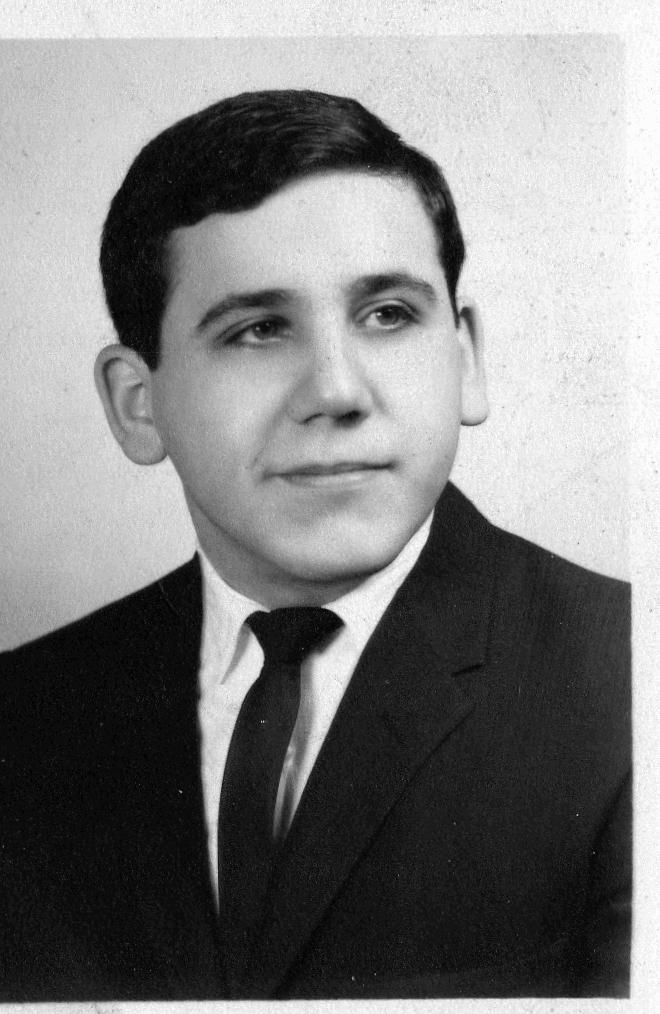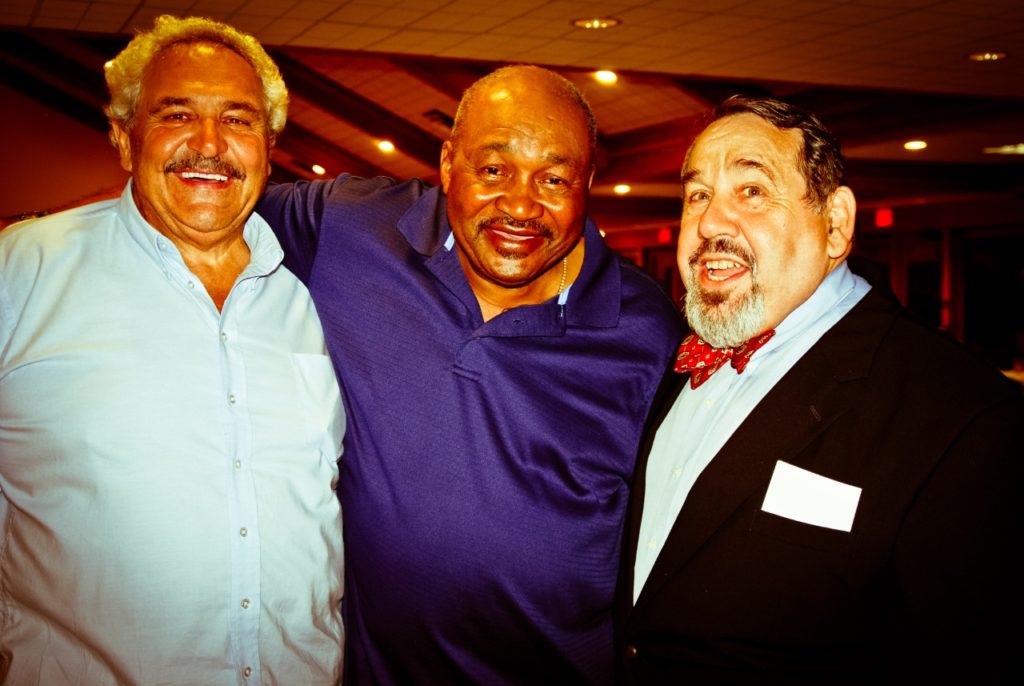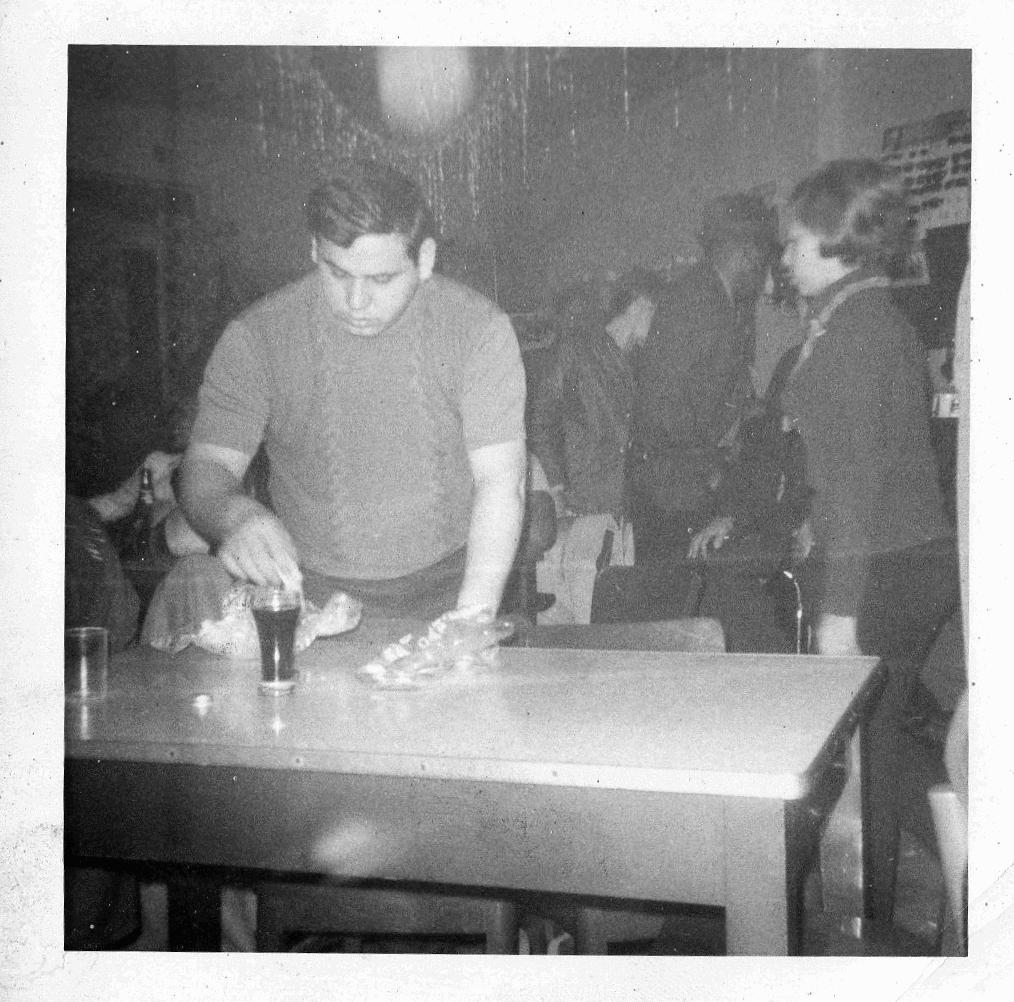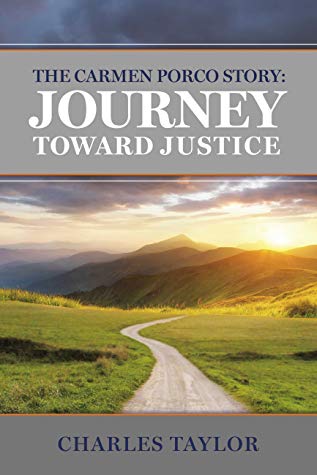
Rev. Carmen Porco, the longtime executive director of Housing Ministries of American Baptists in Wisconsin, has been a well-known and highly respected anti-poverty activist for decades. But there is quite a bit about Porco’s life, especially his very interesting childhood growing up in poverty in his parents’ barroom in West Virginia, that people don’t know much about.
Author, speaker, and diversity expert Dr. Charles Taylor discovered quite a few of those amazing little stories while he was writing the new 222-page biography of Porco’s life story titled “The Carmen Porco Story – Journey Toward Justice.”

“I got to know Carmen well,” Taylor tells Madison365. “Getting to know Carmen over the time that we did this project really taught me about this housing ministry of administrating to the poor, believing in their potential and then giving them the resources they need to become successful. Over this 40-year span that he’s been doing this, he’s literally helped thousands of families move out of poverty. Many now own their own homes and have great jobs.”
Porco is well known for his civil right activism now, famously winning the 2017 Martin Luther King Jr. Humanitarian presented each year by the Dane County and the City of Madison, among many other awards. However, the book dedicates an entire chapter talking about the story of when Porco first arrived in Madison and, according to Porco, former Mayor Paul Soglin called him the biggest “scum-lord” in the city. The two first met up in the early ‘70s because the low-income properties Porco came to manage – Packer and Northport Apartments on the northside of Madison – were in terrible shape.
“As a matter of fact, they were called a disaster by most people in the city … there were all kinds of things going on in those apartments. There was an adversarial relationship between landlords of these types of properties and city administration,” Taylor remembers. “When Carmen first met with the mayor and tried to establish a new type of relationship and try to explain that he was a different type of property manager, the mayor didn’t want to hear it. In fact, he called Carmen a ‘scum-lord’ to his face.”
But Porco did something unique, which is described in the book. He went around with a video camera to city-owned low-income properties and interviewed people in those housing complexes.
“He called a meeting with the mayor again and he showed that video to the mayor,” Taylor says. “He, fortunately, allowed the mayor to understand that they were both in similar types of businesses. The people who lived in the city’s low-income properties had numerous complaints. Carmen essentially told the mayor, ‘If I’m the scum-lord on the private side, then you’re certainly the scum-lord on the public side.’”

Out of that, Taylor says, Porco and Soglin were able to develop a positive relationship.
“When you read the book, you’ll see exactly what Carmen had to go through to reverse these properties because they were rundown and the mortgages were in default,” Taylor says. “The things he had to do in order to change that all around was incredible.
“To me, that transition from scum-lord to champion of the poor is a powerful, inspirational story that I think people will relate to and I think they will have a greater appreciation for things he has been able to do in the city and also in Milwaukee,” Taylor adds.
Taylor says that he was also impressed with Porco’s enduring relationships with black people from a very young age throughout his life.
“From the time he was able to walk, there were black people in his life,” he says.
Porco’s Italian parents started out as bootleggers before they opened a barroom in Weirton, West Virginia where Porco spent his youth interacting with people from diverse backgrounds. And many of those people were African Americans.

“Many of his black friends became close like family. One even saved his life in a swimming accident. Another saved his soul, and that’s a very interesting story in the book,” Taylor says. “And then his best friend that he lost when he was head of a gang. Even today, he has very authentic relationships with black people, so that really impressed me.”
Although Porco is a rather well-known personality in Wisconsin, there’s much about his childhood that people don’t know.
“Many people don’t know about his upbringing and all of the time that he spent at the barroom that really left a lifelong impression,” says Taylor, who is also the author of six non-fiction books, a novel, a Children’s Musical Play, and writer/producer of the award-winning documentary “Decade of Discontent.” “He grew up in poverty in an integrated community in Weirton, West Virginia. Those experiences really left an impression. For many people who grew up in poor communities, they quickly want to get away from that and forget about where they came from. But Carmen never forgot his roots. To me, I think that will leave an impression on people.”

Porco’s life was forever changed when his best friend Bobo Young was killed in a gang fight that Porco led. He soon turned to the church and began preaching at age 15.
“It took the traumatic death of his best friend to really get into examing his life and what direction he wanted to go,” Taylor says. “He was really searching and didn’t know where to turn. This religious pastor that was in his community really helped to save him at that point.”
In seminary school, he had a year of mission work in Milwaukee and that’s where he met the famous Father James Groppi, whom he would soon march with during the open housing marches of the ‘60s.
“Father James Groppi really influenced Carmen, not only in his ministry but his activism in the community,” Taylor says. “Carmen realized that the kind of church that he wanted was really active in the community.”
After graduating from seminary school, Porco began working for the American Baptists in their housing division where he would soon realize that a housing ministry was his calling, rather than pastoring in a traditional church.
“Carmen learned that housing could be a way to improve people’s lives,” Taylor says. “The obstacle, of course, was HUD (Housing and Urban Development) who had a philosophy where their only interest was to provide people shelter – and shelter, period. Carmen felt that if you’re going to bring people into low-income housing, the least thing you can do is to offer them some things like daycare and job opportunities and a number of services.
“When he finally realized that housing ministry was his calling, he began to put together this model of not only how he could serve people, but give them the resources they needed to get out of poverty,” Taylor adds, “and that’s what he’s been doing for the last 40 years.”

Another thing that impressed Taylor was Porco’s whole concept of the “True Church.”
“That the church is not a building or structure, but a community of people who are doing good no matter where they are at … whether they are in the streets, or in their own homes, or in Carmen’s case, low-income housing complexes,” Taylor says. “The ‘True Church’ is all about looking out for each other and trying to help each other succeed in life.
“I think people will be inspired by this book,” Taylor adds. “To me, he’s one of Madison’s most non-traditional pastors. Even though he doesn’t pastor a church, he kept the title ‘Reverend’ just to let people know that you don’t have to be a church to be pastoring and administering to people and serving their needs.”
The Carmen Porco Story: Journey Toward Justice is available here. A book signing will be held Tuesday, Aug. 20, 7-8 p.m. at the Mystery to Me Bookstore, 1863 Monroe St. in Madison and Saturday, Sept. 14, 1-3 p.m. at Milwaukee Public Library – Central, 814 W. Wisconsin Ave.



